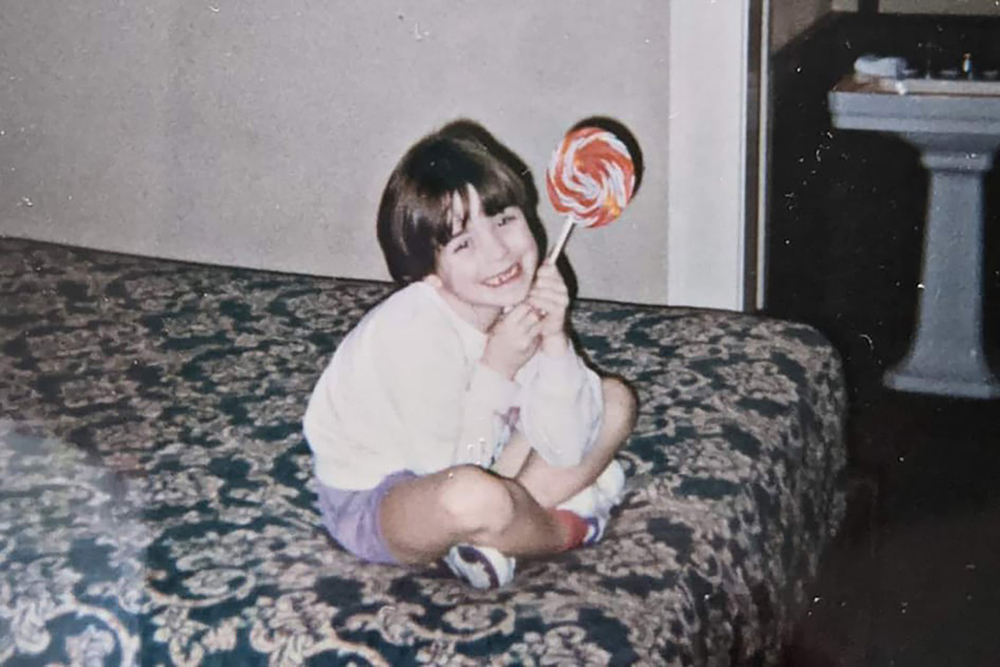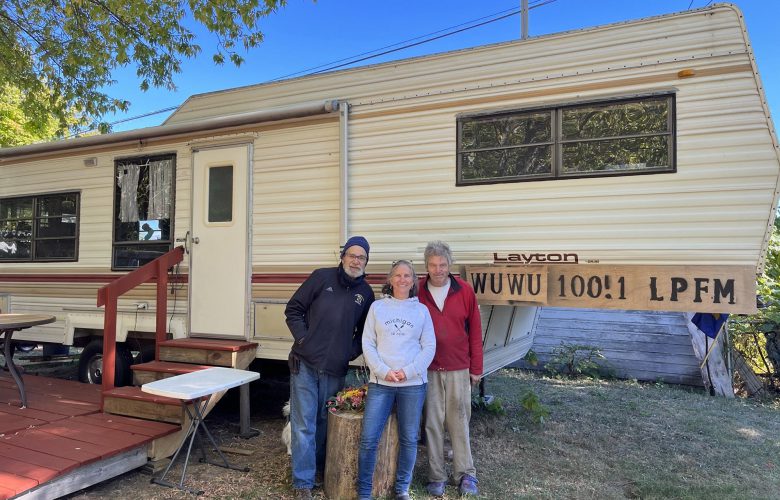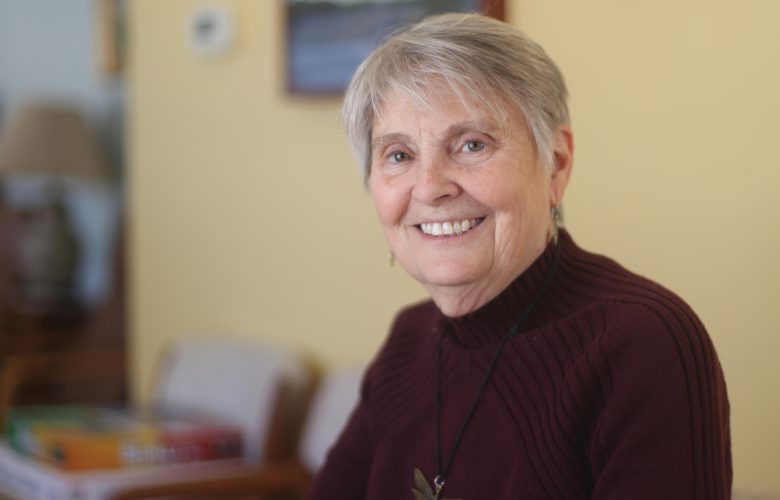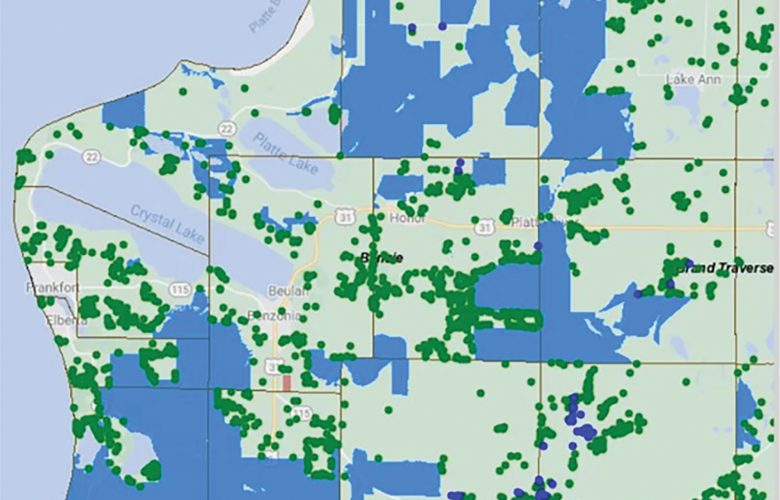A first-hand account from one young woman in Benzie County
By Rhiannon Hildenbrandt
Current Contributor
Imagine you are at your favorite restaurant with a few friends. You are sitting in a booth, catching up, when the friend across from you gets a funny look on her face. You look to the end of the table to see what she is looking at. The sugar packets are all nicely placed in their container, except for one that is sticking out. She reaches for the sugar to fix it.
“Sorry, I’m OCD,” she says while giggling, clearly not understanding the complexity of such a life-altering disorder.
This kind of thing has happened to me more times than I can count; when someone claims to be OCD, though they do not mean an actual Obsessive Compulsive Disorder diagnosis. What they mean is that they are neat, detail-oriented, particular, organized, and/or like to keep things tidy.
Meanwhile, I am a person who actually suffers with Obsessive Compulsive Disorder. I am not “OCD,” but I do have it. (A clear distinction here; people are not their disorders; they have disorders.)
The friend at the restaurant using that phrase, “I’m OCD,” in itself does not offend me; I try to see humor in as many things as I can. What bothers me, however, is that mental health care has become such a stigma in our society. So, when people incorrectly use medical terminology to describe everyday feelings and actions, they are perpetuating stereotypes and promoting misunderstandings of medical conditions. This results in people who are truly diagnosed with similar disorders often being afraid to talk about them.
For instance, until now, I have never openly talked about my OCD. A few of my friends are aware of it, but it is not something that I parade around on a sign for the world to see. Now, I am realizing that it is nothing to be ashamed of. In fact, not talking about it is the reason that people are uninformed.
This next part of my story is raw and possibly triggering, so proceed with caution.
When I was five years old, my uncle came to stay with my family for a few days. I went to bed one night not knowing that my life was about to change forever. What was about to happen would give rise to my first episode of severe OCD.
While everyone else was sleeping, my uncle came into my room that evening and made me touch him. I pretended to be asleep the entire time. At a mere five years old, I could sense danger, and freezing was my effort of “fighting” in a flight-or-fight situation. Looking back, I am amazed that the tiny version of myself knew that waking up might make things worse.
Unfortunately, he did his damage on my life—and later my sister’s—and he is free today. The years that he spent in prison are nothing compared to the rollercoaster he pressed “start” on that night.
After that incident, I changed. I did not tell my parents right away. I began confessing to them every little thing I thought I had done wrong. And by every little thing, I mean that I may have wiped a booger on the floor, and I felt the same shame that I would have if I had committed murder—but if I did not confess, I felt like something really bad would happen. So I was confessing to multiple things every day.
I was five years old, and I felt like I belonged in prison. My mind was in prison, while someone else thought he had gotten away with what he had done. This was the beginning of my personal journey with OCD.
You see, OCD is not always about obsessive hand washing or tidiness, as the previously mentioned friend at the restaurant might think. There are multiple forms of this disorder. To summarize, people with Obsessive Compulsive Disorder have obsessions, which come in many forms—obsessions are bad thoughts.
The bad thoughts that I obsessed over were “supposed” wrongdoings.
People with OCD also have compulsions. Compulsions are rituals that are done in succession to the obsessions. The compulsions are supposed to prevent bad things from occurring or—like in my case—to reassure the person. Unfortunately, OCD results in a horrible cycle, and carrying out those compulsions just makes it worse.
OCD is not logical. A lot of people with OCD know that. But a brain that is chemically different does not care about logic.
Shortly after this “confession” behavior started, my parents got the school counselor involved. They were desperate for answers. Their bubbly little girl was suddenly so different. They had no answers.
About a year later, I came to my mom one night, while she was washing dishes. My therapist had told my parents to only let me confess a certain amount of times per day, and eventually the amount would get less and less per day. That night, I told her that I had just one more confession. She reminded me that we were all done for the day, but I was really upset. I blurted it out—I told her about what had happened that night with my uncle. Obviously, in my little mind, what had happened was somehow my fault. My mom dropped the dishes and ran to tell my dad. They called the counselor. It finally all made sense to them.
In the months and years that followed, my journey with OCD continued. A really great experience with my counselor as a child meant that I got to live a pretty normal childhood. There were times that I suffered greatly, even in silence—touching an object 30 times so that my parents do not die is not exactly something that I was proud of or willing to share. It made me feel crazy. Now well into adulthood, I understand that I am not crazy, and that I never was. I wish that my brain chemistry could understand that too, but my brain chemistry is not exactly my friend.
Fortunately, I still carry with me something that my therapist told me years ago:
“You are not your thoughts.”
I wish I would—or could—have understood that sooner.
Even during times of struggle, my OCD does not define me. I thought that I had grown out of my obsessions and compulsions, for the most part, by the time that I reached middle and high school. I thought that I was miraculously cured and that my journey with OCD was just something from my childhood.
Unfortunately, I had a pretty terrible episode—again triggered by a stressful event—later in my adulthood. The difference this time: I knew how to take care of myself. Sure, I hurt like hell, but I took myself back to counseling and battled through it.
Today, I have regained my sense of self, with my OCD on the back burner. I am well aware that stress can trigger it. I am looking to make some life changes that will continue me down the path of self care, including losing the weight that I have gained. Although my focus is usually on my son, I keep reminding myself that taking care of myself is, in turn, taking care of him.
I hope that mental health becomes something that is more widely discussed, so that people like me do not have to face their battles alone.
Writing this account has helped me to get things out that have been bottled up for way too long. Do not be afraid to talk about these things—we are all humans, and humans are imperfect. Imperfections build strength.
Featured Photo Caption: At the age of five, Rhiannon Hildenbrandt suffered her first episode of severe Obsessive Compulsive Disorder (OCD). Now, she is speaking out to bring awareness of what OCD is, and what it is not. Photo courtesy of Rhiannon Hildenbrandt.




